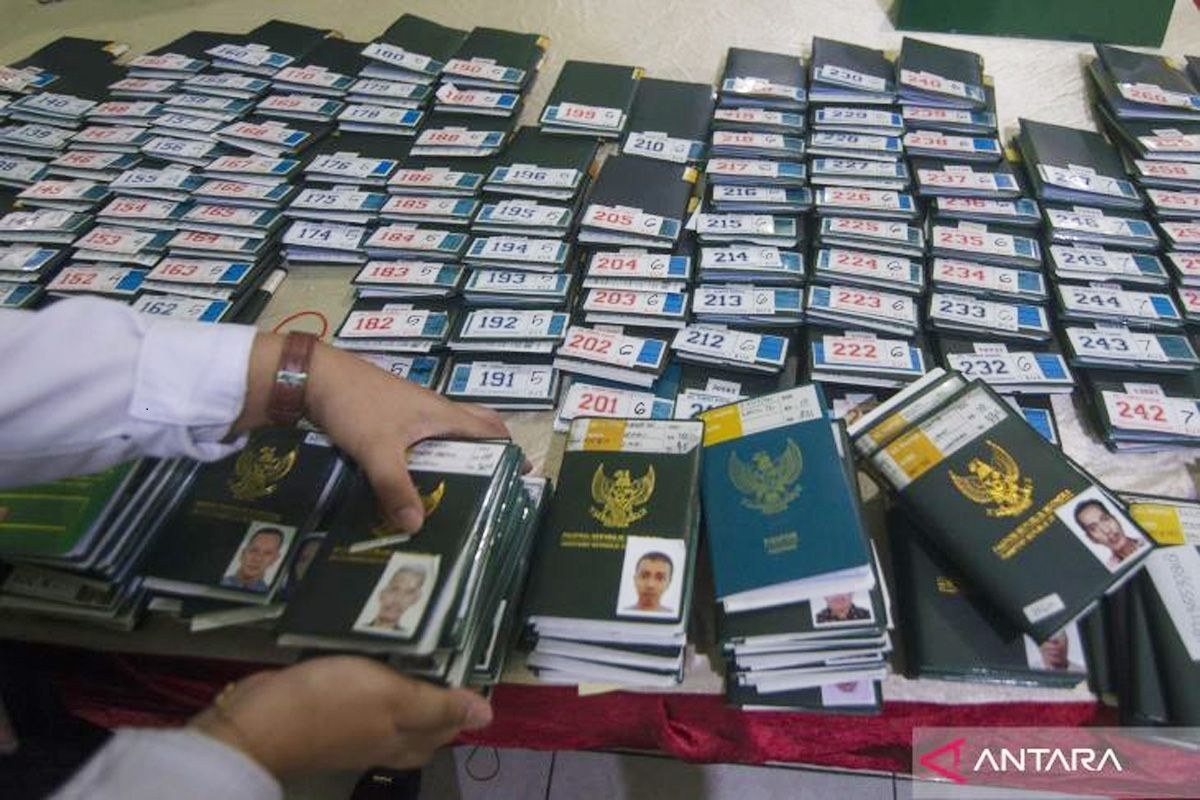These unauthorized practices are not only prohibited by the Saudi Arabian government but also pose serious safety risks for pilgrims.
Since early April, Saudi Arabia has temporarily suspended the issuance of Umrah and visit visas for citizens from 14 countries, including Indonesia. This policy is expected to remain in effect until mid-June, at the conclusion of the Hajj season.
The measure is intended to control the number of incoming pilgrims and prevent illegal practices that often occur before the peak of Hajj. Authorities set April 13 as the final deadline for Umrah pilgrims to enter the country, and all such pilgrims must leave by April 29.
In previous years, many individuals entered Saudi Arabia with Umrah or visit visas and stayed past their permitted time in an attempt to join the Hajj without official authorization.
However, only those holding official Hajj visas are legally allowed to participate in the full pilgrimage.
Increased Enforcement
To address this issue, the Saudi government has intensified security and monitoring efforts. Military personnel have been deployed, large-scale raids are being conducted, and all entry points to Mecca are under strict surveillance.
Even private homes suspected of sheltering unauthorized pilgrims have been inspected. Violators face deportation, heavy fines, imprisonment, and potential blacklisting, which could result in a 10-year ban from reentering Saudi Arabia.
Last year, several Indonesians were detained for violating these rules, including a local government official from Java who was arrested for attempting to perform Hajj without the proper visa.
Related news: Elderly pilgrims should prioritize health during Hajj: Ministry
The Indonesian Consulate General (KJRI) in Jeddah has urged the public to use only licensed Hajj organizers. According to KJRI Hajj Consul Nasrullah Jasam, overstaying visas can lead to severe penalties. Travel agencies that fail to report pilgrims who overstay may be fined up to SAR 100,000 (nearly US$24,000).
Saudi Arabia’s Ministry of Interior has also issued strict regulations prohibiting entry into Mecca without a valid Hajj visa, effective April 29. For expatriates, the restriction began on April 23. Only Mecca residents, Hajj visa holders, and authorized workers are allowed entry during the Hajj season.
In addition, Umrah permits issued via the Nusuk platform have been suspended until June 10. Saudi citizens, expatriates, and GCC nationals cannot apply for Umrah during this period. Mecca hotels are also banned from accommodating guests without Hajj visas or work permits.
These stringent policies aim to ensure the safety, comfort, and security of all Hajj pilgrims.
Misguided Faith
Despite the risks, some continue to pursue Hajj through unofficial means. During the 2024 Hajj season, dozens of Indonesians were deported, and several were convicted in Saudi courts for using fake Hajj credentials or overstaying visas.
Many of them had entered Saudi Arabia weeks before the Hajj season and moved frequently to avoid detection. In one case, 24 Indonesian citizens were arrested at the Miqat in Bir Ali, Medina, attempting to begin the Hajj pilgrimage without valid documents.
These individuals had spent tens to hundreds of millions of rupiah to reach Saudi Arabia. When questioned, they appeared unconcerned about the consequences, believing that their intention to perform Hajj was a divine calling. They were told not to blame organizers if they failed to complete the rituals, but to accept it as the will of God.
Related news: Minister urges improvement of existing fast track Hajj services
While it is true that Hajj is a spiritual calling and failure to complete it is often seen as part of divine will, performing the pilgrimage without proper authorization violates the sanctity and legal integrity of the process.
Those caught face not only legal consequences but are also denied access to tents, transport, and food services during critical days in Arafah, Muzdalifah, and Mina—often enduring extreme temperatures of up to 50°C (122°F).
Without valid visas or registration, they may become stranded, as priority for return flights is given to official Hajj pilgrims.
According to data from the Saudi Ministry of Health, shared by the Indonesian Consulate in Jeddah, 1,301 people died during the 2024 Hajj season, with extreme heat being a major contributing factor. About 83% of those who died were not registered as legal pilgrims. Without shelter or support, unauthorized pilgrims were often forced to walk long distances in dangerous conditions.
Religious and Legal Perspective
Alhafiz Kurniawan, Deputy Secretary of the Bahtsul Masail Institute of Nahdlatul Ulama (PBNU), explained that in Islamic law, a religious act like Hajj is valid if it fulfills all required pillars and conditions.
However, since 2023, PBNU—the largest Islamic organization in Indonesia—has declared that performing Hajj without following government regulations is sinful, even if the ritual itself meets sharia requirements. Compliance with legal procedures is now considered a religious obligation.
Given the complex rules and the significant risks involved, the public is strongly advised not to be swayed by offers to bypass official Hajj procedures. Shortcuts may lead to hardship, and a legitimate pilgrimage brings not only peace of mind but also spiritual fulfillment.
Let your sincere intention to perform Hajj lead to blessings—not to legal trouble, deportation, or a decade-long ban from the holy land.
Related news: Saudi immigration monitors Indonesian Hajj "fast track" services
Related news: President Prabowo to send off first Hajj pilgrim batch on May 2
Translator: Asep Firmansyah, Resinta Sulistiyandari
Editor: Anton Santoso
Copyright © ANTARA 2025












